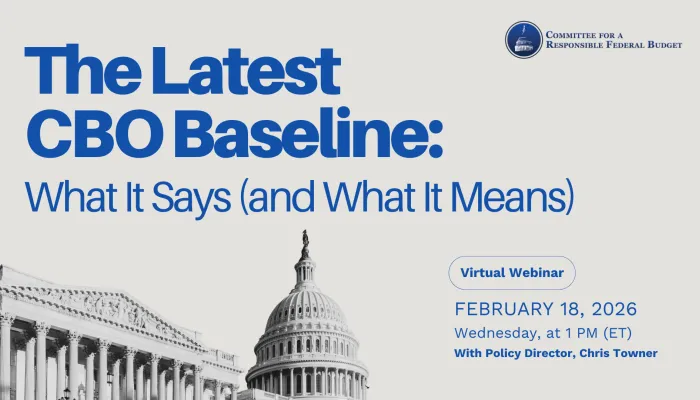FY 2013 Budget is Settled...For Now
Late last week, the Senate passed a continuing resolution (CR) by a 62-30 vote to keep the government funded for the next six months with only a week to spare before the start of the fiscal year. The government will be funded at a $1.047 trillion annual rate through March 27 of next year, representing a 0.6 percent increase for each of the 12 appropriations bills over last year. Including emergency, disaster and war spending, the bill funds the government at an annual rate of $1.15 trillion, a decline of $26.5 billion from last year, mostly due to the war drawdown. President Obama is expected to sign the bill sometime this week.
Passing the CR will avoid a government shutdown, which has threatened the budget process the past two years. But Congress leaves without addressing the sequester or the rest of the fiscal cliff. As Congress heads home to campaign, much of work is left still to be done, with the next opportunity coming during the lame duck session. The potential economic downturn with the threat of the fiscal cliff and possible downgrades from credit rating agencies ensure that the negotiations during lame duck period will be absolutely critical.
CRFB President Maya MacGuineas reminded us in an op-ed in The Hill last week that while the members of Congress might be allowed to head home, our fiscal challenges will stay on the table until we agree upon a plan to deal with it. As she states:
Such a plan must be bipartisan and comprehensive, addressing all parts of the budget, including cuts in low-priority spending, reforms of entitlement programs to reduce the growth of health care entitlements and make Social Security financially sound, and pro-growth tax reform which broadens the base, lowers rates, raises revenues, and reduces the deficit. It must also be large enough to stabilize and ultimately reduce the debt, but be implemented gradually to protect the fragile economic recovery and to give Americans time to prepare for the changes in the federal budget. Lastly, the plan should be conducive to long-term economic growth, protect the vulnerable, include credible enforcement mechanisms to ensure that the promised deficit reduction is achieved, and leave the next generation better off.
We are running out of time and rhetoric is of little value at this point. We need action.
Passing the CR might have prevented a government shutdown for now, but the hard work of both averting the fiscal cliff and a mountain of debt remains to be done -- preferably far in advance of January 1st.


